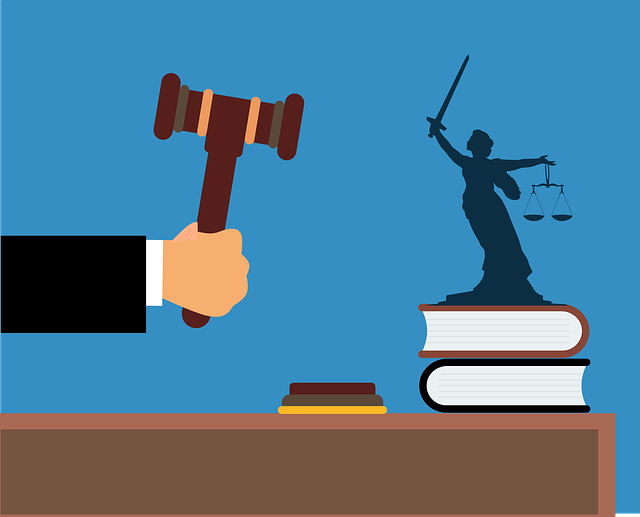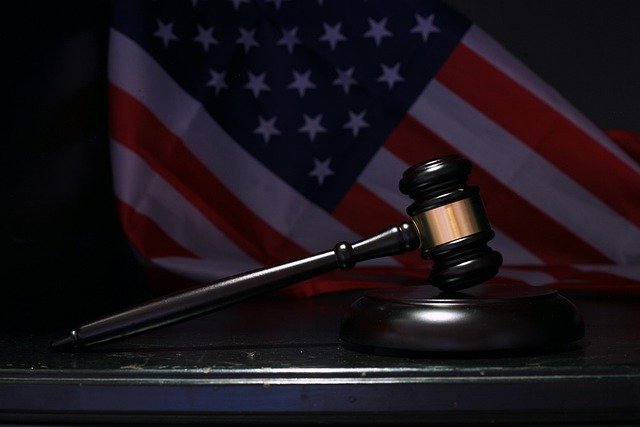The text contrasts Administrative Proceedings and Civil Litigation in criminal law, emphasizing their key differences. While administrative processes, focused on regulatory enforcement by government agencies, have lower proof standards and aim for efficiency, civil litigation deals with private disputes seeking monetary compensation or specific performance. It highlights the non-adversarial nature of admin proceedings, distinct roles for victims in criminal trials compared to admin cases, and constitutional rights afforded defendants in both systems. Understanding these differences is crucial for navigating complex white-collar crime cases.
Criminal law enforcement is a complex system involving distinct processes from administrative proceedings, which can often blur definitions. This article aims to demystify these differences through a comprehensive exploration of civil litigation versus criminal law enforcement. We’ll dissect key distinctions, the roles of evidence in each system, and the implications for victims and defendants. Understanding these differences is crucial for navigating legal complexities and ensuring justice.
- Understanding Administrative Proceedings: An Overview
- Civil Litigation vs. Criminal Law Enforcement: Key Differences
- The Role of Evidence and Legal Standards in Each System
- Implications for Victims and Defendants: Rights and Protections
Understanding Administrative Proceedings: An Overview

Administrative proceedings differ significantly from civil lawsuits, with distinct procedures and focuses. While civil litigation centers on resolving disputes between private parties or individuals and organizations, administrative processes involve government agencies and focus on enforcing laws and regulations. These proceedings are typically non-adversarial, meaning they don’t follow the traditional ‘plaintiff vs defendant’ structure.
In the realm of criminal law enforcement, understanding these differences is crucial, especially when dealing with high-stakes cases such as white collar and economic crimes. The respective business practices of government agencies, often involving complex regulatory frameworks, demand a nuanced approach. This overview emphasizes the importance of recognizing these distinctions to ensure fair and efficient administration of justice in both civil and administrative contexts.
Civil Litigation vs. Criminal Law Enforcement: Key Differences

In navigating the complexities of legal systems, understanding the nuances between Civil Litigation and Criminal Law Enforcement is paramount. While both involve dispute resolution, they significantly differ in their objectives, procedures, and potential consequences. Civil litigation, driven by private parties, aims to redress harm and obtain compensation through general criminal defense strategies focused on fault and liability. This process typically occurs in courts dealing with administrative proceedings and involves a range of disputes from contract breaches to personal injuries.
In stark contrast, Criminal Law Enforcement centers on societal norms and public safety. Here, the state or prosecution brings charges against individuals accused of crimes. Unlike civil litigation, criminal cases often culminate in severe penalties including imprisonment and fines. While white collar defense strategies may be employed to challenge allegations, the primary goal is not monetary compensation but ensuring a complete dismissal of all charges and protecting individual liberties within the legal framework.
The Role of Evidence and Legal Standards in Each System

In criminal law enforcement, evidence plays a pivotal role, especially when considering the differences between administrative and civil proceedings. Administrative processes often deal with internal affairs, licensing issues, or regulatory compliance, where the burden of proof is typically lower than in civil or criminal cases. Here, legal standards may vary significantly, focusing more on efficiency and policy implementation rather than achieving extraordinary results. The goal is usually to ensure fair practices within a respective business or agency, leading to actions like fines or license revocations.
On the other hand, civil proceedings involve private disputes between individuals or entities, aiming for compensation or specific performance. In these cases, legal standards demand stronger evidence and stricter adherence to procedural rules. The focus shifts towards determining liability and delivering justice, which can result in monetary damages or injunctions. Unlike administrative processes, where a complete dismissal of all charges might be possible under certain circumstances, civil litigation seeks resolution through settlement or trial, ultimately aiming for a balanced outcome that respects the rights of all parties involved.
Implications for Victims and Defendants: Rights and Protections

In criminal law enforcement, the implications for victims and defendants are multifaceted, with significant rights and protections in place. When a crime occurs, both parties—the victim and the accused—navigate a complex legal system that differs markedly between administrative and civil proceedings. Understanding these distinctions is crucial, especially in cases involving white-collar offenses, which often pit corporate and individual clients against one another.
Administrative proceedings typically focus on regulatory compliance and enforcement, with less emphasis on punishing the offender. In contrast, civil litigation centers on resolving disputes between private parties, where monetary damages are a common outcome. While victims may seek compensation through civil lawsuits, they also have the right to participate in criminal trials, providing them with a voice during jury trials—a key difference from administrative processes. Defendants, for their part, enjoy constitutional protections, including the right to counsel and due process, ensuring that the legal system maintains balance between seeking justice and safeguarding individual liberties.
In conclusion, understanding the distinctions between administrative and civil proceedings is paramount in navigating criminal law enforcement. While both systems share goals of justice and fairness, they diverge significantly in their approaches, evidentiary standards, and rights for victims and defendants. Recognizing these differences is crucial for ensuring that legal processes are effective, transparent, and respectful of individual liberties. By comparing the key elements of administrative versus civil litigation, we can better equip ourselves to defend and protect the rights of all involved, fostering a more equitable criminal justice system.






